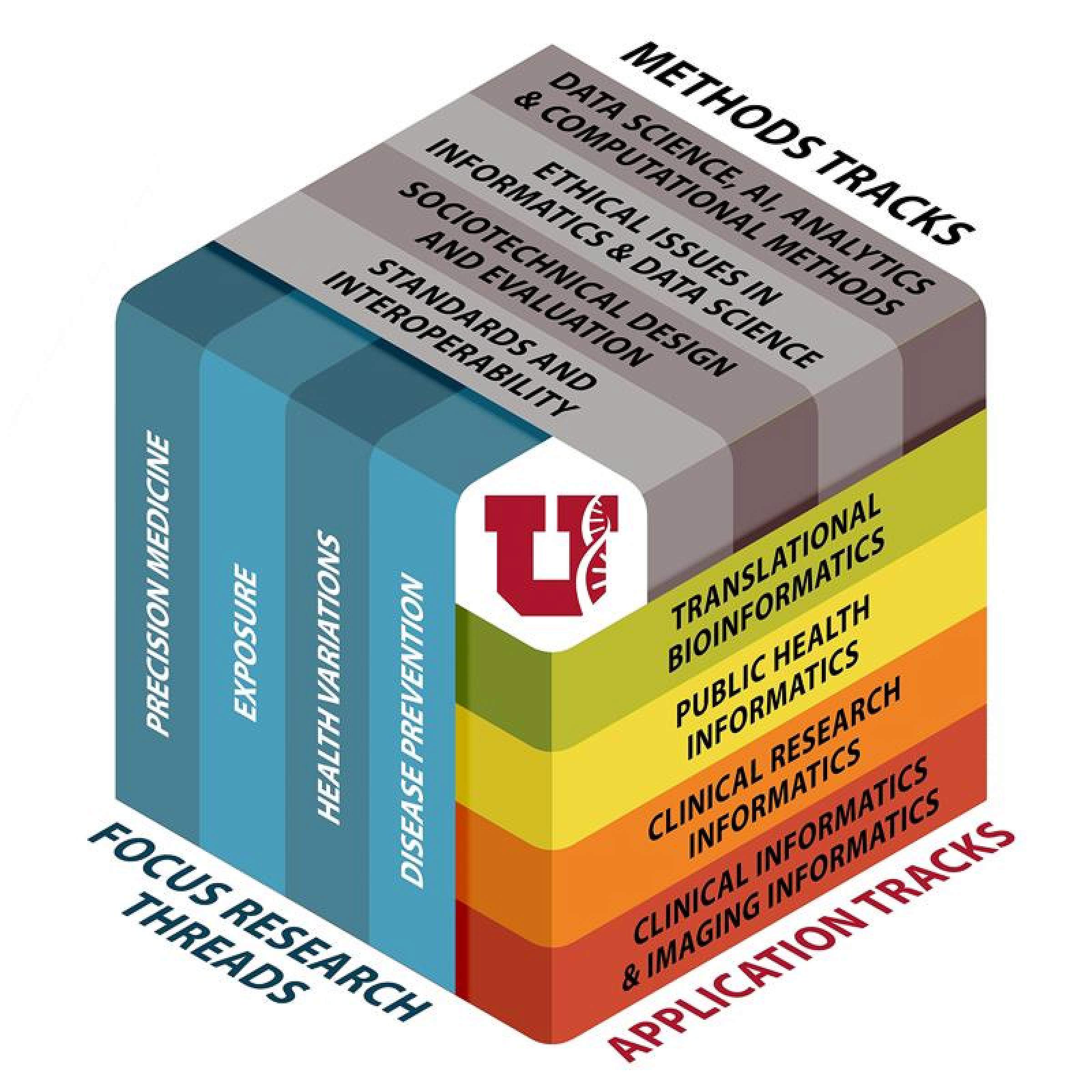

PhD in Biomedical Informatics
PhD in Biomedical Informatics
Our PhD program provides intensive research training and coursework in biomedical informatics. The primary goal of the program is to train the next generation of students to be independent scientists who can transform data into knowledge to improve the health of individuals and populations.

CURRICULUM CUBE
The strengths of our program faculty are utilized in the building of the curriculum. This figure shows the expertise by application area (green, yellow, orange, red), methodology (grey), and focal research area (teal). After a year of core courses, students join an application track and choose methods courses as needed. The research foci are woven through the curriculum and demonstrate departmental strengths, although students are not limited to these fields.
Application Tracks
The strengths of our program faculty are utilized in the building of our curriculum and broken down into 4 application areas:
Methods Tracks
There are 4 methods tracks, and students select courses from one or more track to meet their learning needs:
RESEARCH THREADS
There are 4 focus research threads that have been designed to allow the trainee to find their starting point and build their skill set and knowledge:
COURSEWORK
The PhD degree requires approximately 35 hours of formal coursework with a grade of B- or better and a minimum GPA of 3.0. A PhD student must pass a written and oral Comprehensive Exam after the first year of study. Graduate work at this or other institutions, including courses taken for an MS degree, may be applied to the PhD coursework requirement at the discretion of the student's advisory committee and the University of Utah transfer credit policy. After completion of coursework, the student must pass a PhD written and oral Qualifying Examination. In addition to the coursework, 14 or more hours of research work hours(taken as BMI 7970) are required. This work must lead to completing and defending an original PhD dissertation demonstrating the student's capabilities to conceive and execute an independent research project.
FUNDING
The admission process is rigorous, and we attempt to provide funding for all admitted candidates. We work to match people's interest with research projects mentors. Funding includes:
-
Annual $41,000 stipend
-
100% tuition coverage
-
Health insurance
-
Support for research conferences
MORE INFORMATION
-
First department of biomedical informatics, established in 1964
-
Internationally recognized as a leader in biomedical informatics
-
Available support via the National Library of Medicine Training Grant and other resources
-
Abundant research opportunities with leaders in the field
